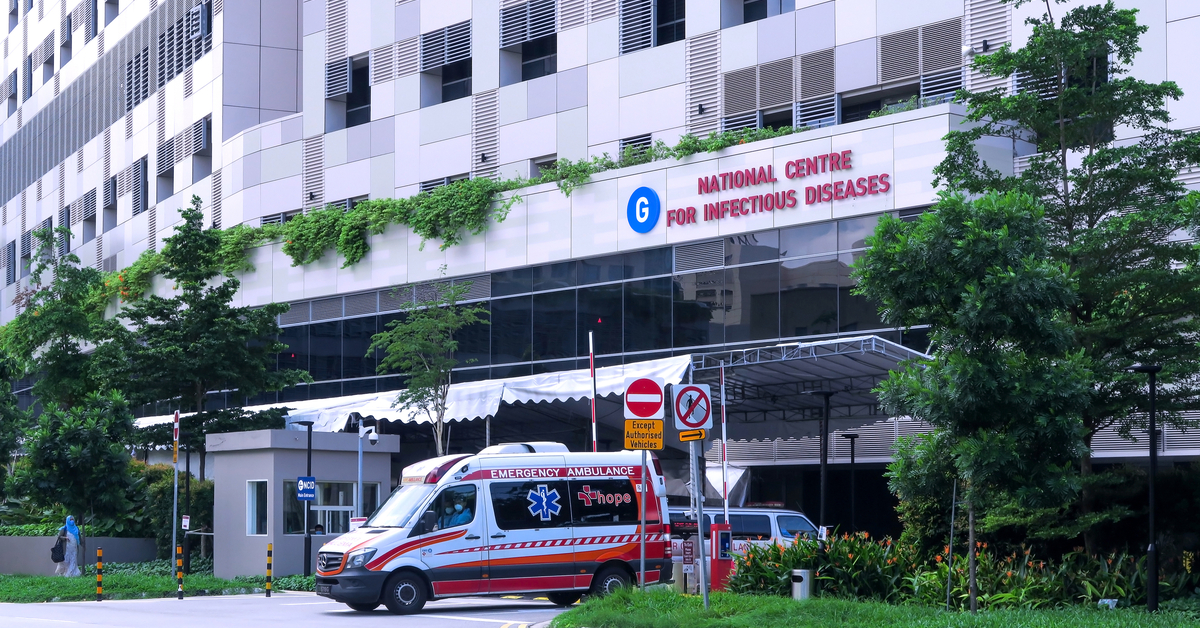We all should know from experience that it’s just a matter of time before we detect the first Omicron case in Singapore, but no one would’ve expected that it’d be so soon.
This evening (2 December), MOH said in a statement that two imported COVID-19 cases have tested preliminarily positive for the Omicron variant.
Here’s what you need to know.
S’pore Has Detected 2 Patients Who Tested Preliminarily Positive for Omicron Variant
According to MOH, both cases were isolated upon arrival in Singapore on 1 December, and had not interacted in the community.
They had arrived from Johannesburg on board SQ479 on 1 December.
There is currently no evidence of any community transmission from these cases.
The cases are currently recovering in isolation wards at the National Centre for Infectious Diseases (NCID). Both are fully vaccinated, and have mild symptoms of cough and scratchy throat.
The first case is a 44 year-old male Singapore Permanent Resident who arrived in Singapore from Mozambique, transiting through Johannesburg. His pre-departure test in Mozambique on 29 November was negative for COVID-19 infection.
The second case is a 41 year-old female Singaporean who arrived in Singapore from South Africa on 1 December. Her pre-departure test in Johannesburg on 29 November was negative for COVID-19 infection.
They had undergone a polymerase chain reaction (PCR) test upon arrival in Singapore, and were immediately conveyed to a Stay-Home Notice (SHN) dedicated facility to be isolated while awaiting their test results. Upon confirmation of COVID-19 infection, they were conveyed to NCID.
Their PCR test results have revealed the presence of S-gene Target Failure which may be associated with the Omicron variant. The National Public Health Laboratory is conducting whole genome sequencing to confirm the variant.
Join our Telegram channel for more entertaining and informative articles at https://t.me/goodyfeedsg or download the Goody Feed app here: https://goodyfeed.com/app/
Extensive Contact Tracing Ongoing
It’s been a while since we’ve seen this sentence: contact tracing is ongoing.
All 19 other passengers who came in on the same flight have tested negative for COVID-19 infection. These individuals were all quarantined under SHN at designated facilities upon arrival and are subjected to a testing regime which includes an on-arrival PCR test and a SHN exit PCR test.
Other close contacts of these cases, if any, will be placed on 10-day quarantine at designated facilities and undergo PCR tests at the start and end of their quarantine. All patients suspected or confirmed to be infected with the Omicron variant will be conveyed to NCID for isolation and clinical management. Home recovery will not apply.
Omicron: A High Global Risk
While there are some who felt that the Omicron variant is a good thing, the World Health Organisation (WHO) feels otherwise.
They warned the world to be prepared for the new variant as it poses a “high global risk”.
Accelerate vaccination drives for vulnerable groups, the organisation urges.
It also called for a new global agreement on dealing with pandemics.
The Omicron variant was first detected on 24 Nov in South Africa, coinciding with a rise in cases there.
However, it is not yet clear if the strain is more transmissible or more likely to cause severe disease.
As it’s been classed as a “variant of concern”, the WHO recommends that countries enhance their surveillance and sequencing of genomes and report initial cases or clusters to WHO, among other things.
It also advised countries to take a “risk-based approach to adjust international travel measures”.
Read Also:
- A Summary of All the Other COVID-19 Variants of Concerns & What Happened to Them
- Confirmed: VTL S’pore Travellers to South Korea Won’t Need Serve 10-Day Quarantine
Featured Image: kandl stock / Shutterstock.com
